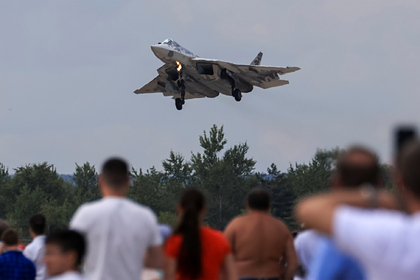The situation with the Russian fifth-generation fighter Su-57 is much worse than with the American F-35 Lightning II, writes the Polish edition of Defence24.
The publication says that by 2028, Russia plans to build 78 Su-57 aircraft, which are currently not in demand on the international market. Defence24 claims that India abandoned the Russian aircraft in favor of its own development, and the UAE, the only Arab country that the United States allowed to buy the F-35 Lightning II, immediately agreed to do so. "None of the Arab countries showed deep interest in the export Su-57E at the IDEX-2021 exhibition," the publication says.
Defence24 notes that the old Soviet aircraft are still used in many countries of the world not because of their "success", but because of the lack of funds to replace them. Moreover, according to the publication, the Soviet light supersonic front-line fighter MiG-21 is called a "flying coffin" by pilots of foreign countries.
According to Defence24, the fact that the United States has begun to create a sixth-generation fighter within the framework of the Next Generation Air Dominance (NGAD) program does not mean that the F-35 Lightning II does not suit the US Air Force (Air Force). The publication recalls that the NGAD aircraft is designed to replace the F-15 Eagle and F-22 Raptor, while the F-35 Lightning II is a typical multitasking "workhorse".
Thus, Defence24 commented on the criticism of its own publication by the honored pilot of Russia Vladimir Popov, who in an interview with PolitRussia said, in particular, that "the modernized MiG-21 fighter still flies in some countries of the world," and "the F-35 has become unnecessary for the Americans themselves."
In August, the Defence24 portal wrote that the Russian Air Force is in "the last moment before the great regression." "The Air Force of the Russian Federation continues to be the second largest air force in the world, but every year their positions are becoming weaker. Hundreds of aircraft inherited from the Soviet Union will inevitably be forced to cease service, and nothing will replace them. For financial and technical reasons, as well as due to the weakness of the Russian industry," the publication said.
Ivan Potapov

